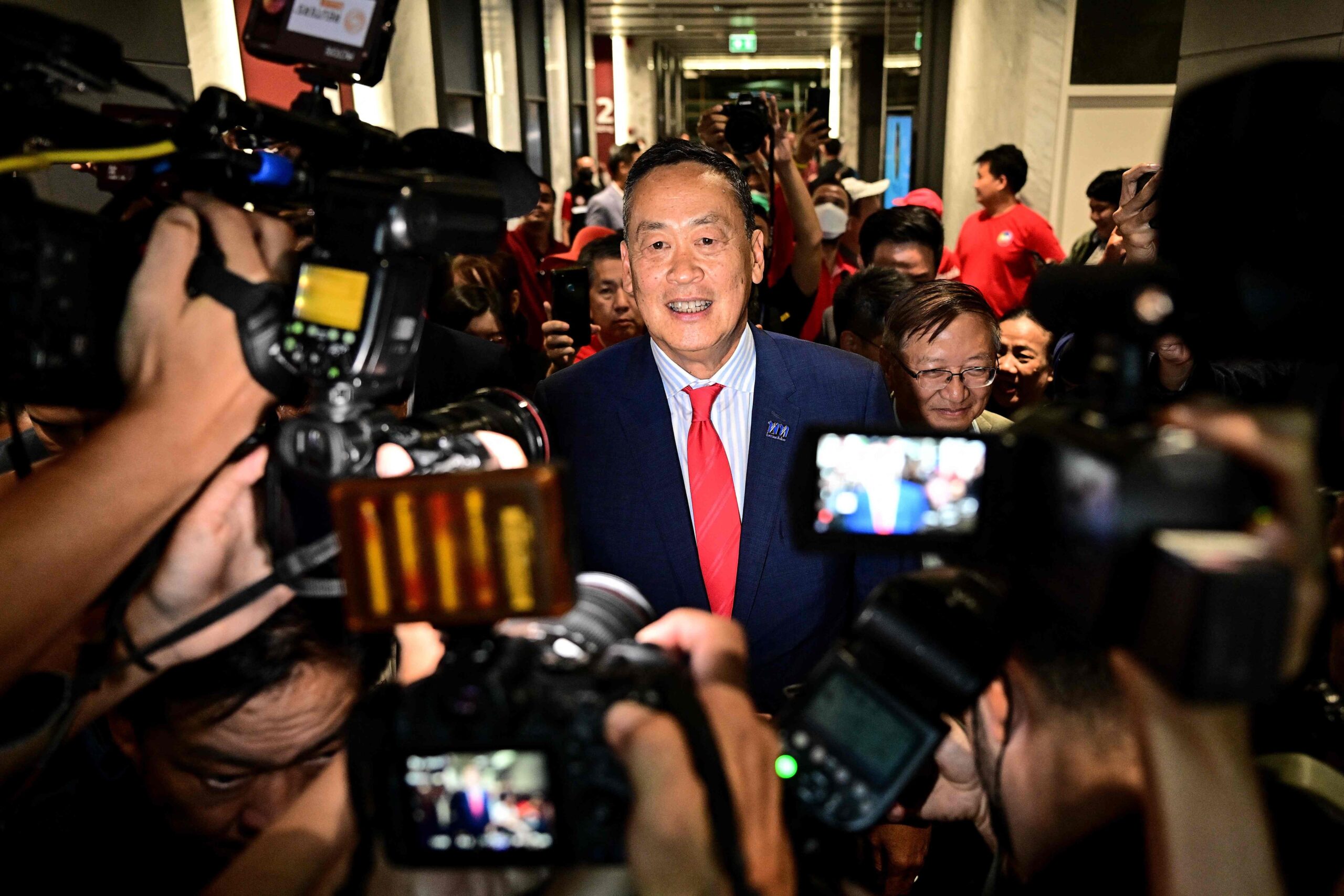BANGKOK (AFP) – Thailand’s king endorsed incoming prime minister Srettha Thavisin, an official said, paving the way for him to officially assume office on Wednesday.
Former property mogul Srettha, 61, of the Pheu Thai party long associated with billionaire ex-premier Thaksin Shinawatra, will head a coalition government that controversially includes pro-military parties.
Srettha was approved in a joint vote of both houses of parliament on Tuesday just hours after Thaksin returned to the kingdom from 15 years of exile – and was immediately jailed on old graft cases.

“We have been informed that the King has endorsed the new PM, though the letter has not arrived back at the office yet,” a spokesman for the House Speaker Kampi Dittakorn told reporters.
The royal endorsement is expected to be read to Srettha in a ceremony at Pheu Thai headquarters around 6pm, at which point he will officially become prime minister.
Srettha’s confirmation ended three months of deadlock and wrangling in Thailand that began with the May general election.
The upstart progressive Move Forward Party (MFP) rode a wave of youth and urban discontent with nearly a decade of military-backed rule to win the most seats.
But its push to reform royal insult laws and take on powerful vested business interests spooked the kingdom’s powerful elite and saw leader Pita Limjaroenrat blocked from becoming prime minister.
The last two decades of Thai politics have been coloured by the bitter tussle between pro-Thaksin parties and the kingdom’s powerful pro-military and royalist establishment.
Thaksin was jailed for eight years on Tuesday, but the timing of his return, combined with Pheu Thai’s decision to share power with pro-military parties, has led many to speculate that a backroom deal has been struck to grant him leniency – though the party denies it.
The former Manchester City owner, 74, was moved from a prison quarantine facility to a police hospital on Wednesday.
Officials said he was suffering from multiple health problems, including heart trouble, and needed monitoring in hospital.
Loved by the rural poor for policies including cheap healthcare and the minimum wage, Thaksin is reviled by the kingdom’s elite, who saw his 2001 to 2006 rule as corrupt, authoritarian and a threat to the Thai social order.
Pheu Thai has angered some of its supporters by allying with parties linked to the coup-maker generals who ousted Thaksin in 2006 and his sister Yingluck in 2014.
The deal shuts out MFP, and so despite winning most seats, the party will sit in opposition, with leader Pita on Tuesday saying Pheu Thai’s coalition “contradicted the wishes of the people”.


